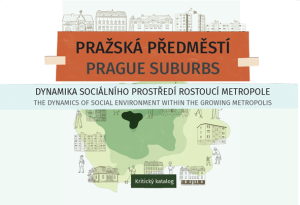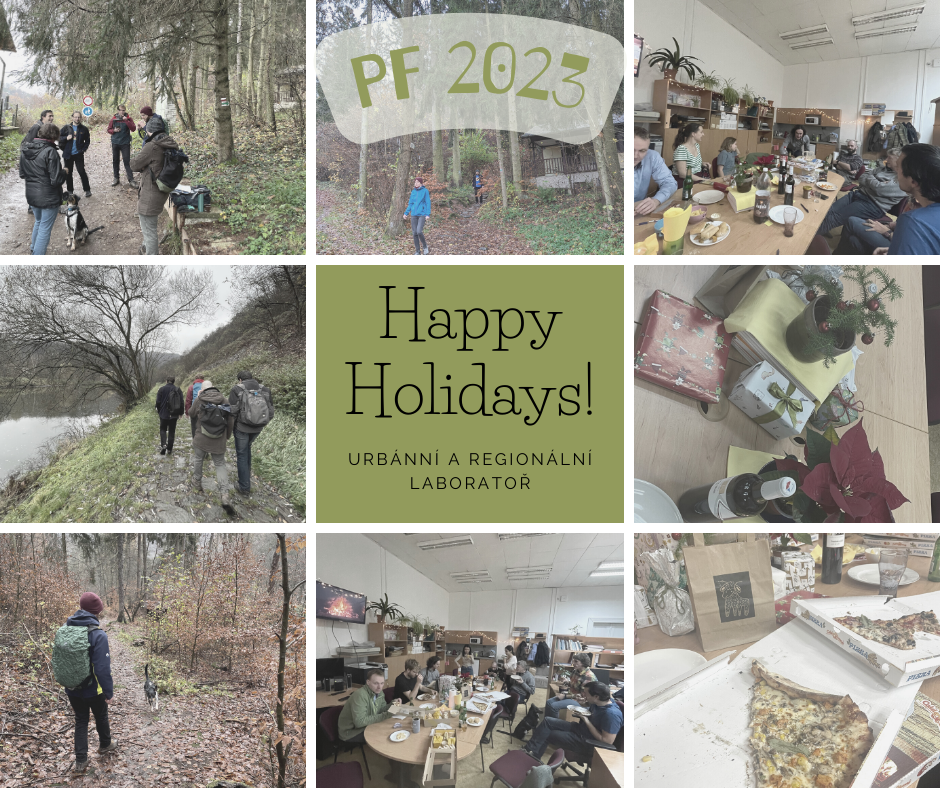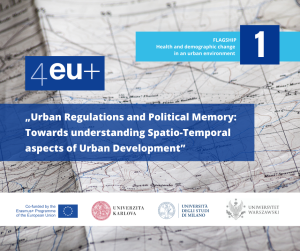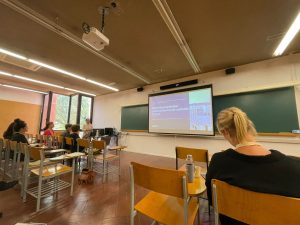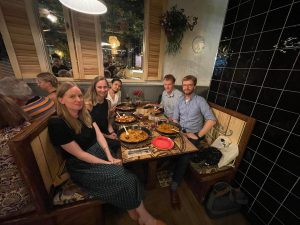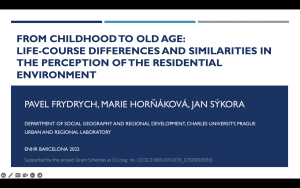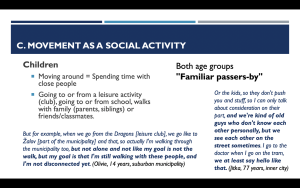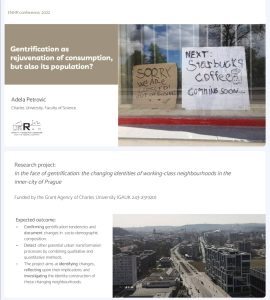Are you thinking of studying for a PhD? Are you interested in urban studies?
Come study with us!
We currently have
5 interesting topics listed in the areas of
everyday mobility and commuting, migration processes, use of urban space, crime and segregation.
Topics and supervisors
Daily mobility and commuting within the Prague metropolitan region (Martin Ouředníček)
The project is based on the main ideas of time-space geography, daily paths, rhythms, and commuting within the urban environment. As an alternative to traditional commuting data from population censuses, mobile phone data is employed together with questionnaires and qualitative methods of daily mobility pattern investigation. For the project, the mobile phone operator´s data is prepared. Potential research questions should be formulated as follows: (1) What are the typical spatial patterns of daily mobility within the metropolitan region? (2) How does the concentration of residents, daily users, and jobs change throughout the day? (3) What is the balance of centripetal and centrifugal processes within the metropolitan region? (4) What can we learn from the daily rhythms, and how would these outputs be used to plan different parts of metropolitan regions? And, (5) what novel methods can be employed in the analyses, visualisation, and modelling of daily patterns?
Migration processes in Czechia (Martin Ouředníček)
The main objective of the project is to describe and explain contemporary development of migration processes within the settlement system in Czechia. Till now, urbanisation and urban processes were investigated separately and for individual metropolitan regions. We can argue that gentrification, international migration, suburbanisation and counterurbanisation are interconnected processes which function as actions and reactions within the settlement system and are mutually dependent. While international migration and migration of young people are concentred more to the centres of large metropolitan areas, deconcentration processes as suburbanisation and counterurbanisation could be seen as reactions to these processes. The starting points for the theoretical basis of the proposed project would be theory of differential urbanisation and stages of urban development. The empirical analyses will first use data from migration database in the detail of Czech municipalities and then would be extended to selected case studies with more attention to qualitative research, mapping, and terrain work.
Everyday life in a city: Conception, experience and use of urban space (Lucie Pospíšilová)
The project is focused on unique conceptions, experiences and uses of urban spaces. Using qualitative research methods, the experience and spatial practices of women/children/people with disabilities in urban environment are studied and the theories and concepts of feminist geographies/children geographies or disability geography are used to understand the experience and practices. By studying unique experience in specific urban environment the existing theory can be also developed. The choice of experience as well as concrete focus of the thesis (e.g. material and discursive barriers and possibilities that shape an everyday life) can be discussed with the supervisor.
Geographies of crime and public policy (Martin Šimon)
This research project provides an opportunity to explore and advance spatial criminology in Czechia. We know the crime clusters in time and space, therefore they can be targeted by place-based crime prevention strategies and policies. Traditional focus on spatial and temporal patterns of crime within cities has been increasingly linked to studies on police demand, public safety and prevention tools applied in urban space. Only recently, detailed data on crime became available for researchers and policy makers. The PhD project can use open data on crime provided by Czech police or detailed crime data with GPS coordinates, which are available to all cities and municipalities on request. Thus, pilot studies on crime prevention and field research experiments with local stakeholders are enabled. The research activities should be focused on a) criminological theory, b) crime data analysis, c) crime prevention praxis and evaluation or d) related case studies.
Urban segregation of minority populations (Martin Šimon)
Uneven distribution of social groups over space is a key characteristic of contemporary cities. Both position in social structure and residential location can have significant impact on daily life and life opportunities. Growth and diversification of minority population in Prague has been described, however, further insights into reproduction of segregation and complexities of segregation in daily life are needed. How do migrants look for housing? How are peer-networks developed? Do immigration experiences differ between generations and cohorts? Such research questions could be addressed for a selected minority population. Applicants are invited to identify a focus for their PhD within this area, preferably using mixed methods design and capitalising their language abilities. Theoretical framing could build on three main explanatory factors of residential segregation, which are (1) economic conditions, (2) preferences and (3) discrimination. The research project could benefit from register data on foreign population in Czechia and from previous surveys of minorities.
You can find out more about the topics here, but feel free to contact the supervisors directly.

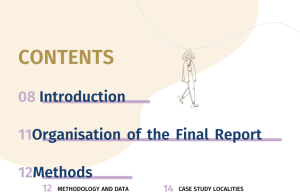 The project officially ended at the end of March 2023, and all four researchers
The project officially ended at the end of March 2023, and all four researchers 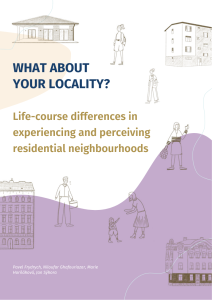
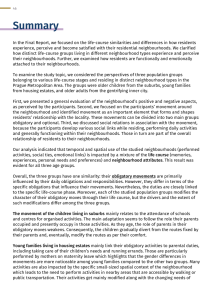
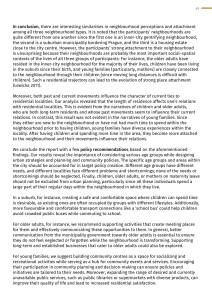
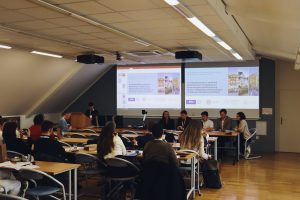 Course „Urban Regulations and Political Memory: Towards understanding Spatio-Temporal aspects of Urban Development” (UNREAD) is one of the educational projects developed under Flagship 1 of the 4EU+ alliance. A team of historians, lawyers and geographers from University of Warsaw, University of Milan, and Charles University conducts this interdisciplinary course. The first edition started in October 2021 and was finalised in March 2022, while the second began in October 2022 and was completed in March 2023. The topics of this course are driving forces of urban changes, the development of smart cities and interdisciplinary methodologies of urban studies applied to cases in Czechia, Poland and Italy.
The final conference was organized by the Faculty of Science, Department of Social Geography and Regional Development. Two members of our research team (Martin Ouředníček and Adel Petrović) together with master students of geography (Jakub Kraft and Daniel Bečvář) and the head of the Map Collection (Eva Novotná) prepared the whole two-days program.
Course „Urban Regulations and Political Memory: Towards understanding Spatio-Temporal aspects of Urban Development” (UNREAD) is one of the educational projects developed under Flagship 1 of the 4EU+ alliance. A team of historians, lawyers and geographers from University of Warsaw, University of Milan, and Charles University conducts this interdisciplinary course. The first edition started in October 2021 and was finalised in March 2022, while the second began in October 2022 and was completed in March 2023. The topics of this course are driving forces of urban changes, the development of smart cities and interdisciplinary methodologies of urban studies applied to cases in Czechia, Poland and Italy.
The final conference was organized by the Faculty of Science, Department of Social Geography and Regional Development. Two members of our research team (Martin Ouředníček and Adel Petrović) together with master students of geography (Jakub Kraft and Daniel Bečvář) and the head of the Map Collection (Eva Novotná) prepared the whole two-days program.
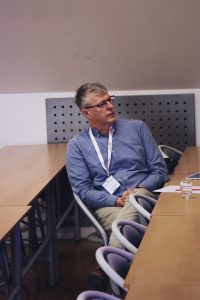 Students of the course presented their research project outcomes: suburbanisation, smart villages, social housing, spatial planning, urban green areas…These are some of the topics presented by students during two panels on the first day of the conference.
On the second day, the main coordinator of the project dr. Karolina Wojciechowska led a panel discussion and asked the participants for feedback. The positive aspects pointed out that the course is interdisciplinary, interactive and international, providing hands-on knowledge and preparing students for not only academic but also professional careers. The students mentioned that meeting in person, not only at the end but also at the beginning of the course, would make the research and their engagement easier and smoother.
Throughout the two days, the participants could enjoy a guided tour around the inner-city of Prague, visit the map collection of the Geographical Institute, and participate in workshops aimed at integration with colleagues from other universities and developing international contacts.
Students of the course presented their research project outcomes: suburbanisation, smart villages, social housing, spatial planning, urban green areas…These are some of the topics presented by students during two panels on the first day of the conference.
On the second day, the main coordinator of the project dr. Karolina Wojciechowska led a panel discussion and asked the participants for feedback. The positive aspects pointed out that the course is interdisciplinary, interactive and international, providing hands-on knowledge and preparing students for not only academic but also professional careers. The students mentioned that meeting in person, not only at the end but also at the beginning of the course, would make the research and their engagement easier and smoother.
Throughout the two days, the participants could enjoy a guided tour around the inner-city of Prague, visit the map collection of the Geographical Institute, and participate in workshops aimed at integration with colleagues from other universities and developing international contacts.


